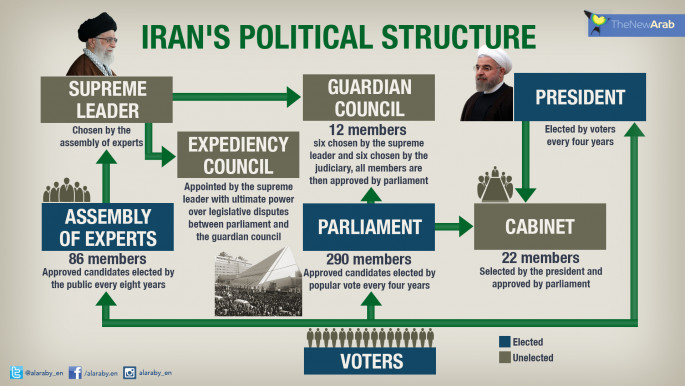Grandson of Iran's Ayatollah Khomeini enters politics as moderate
The grandson of the founder of Iran's Islamic republic, Ayatollah Ruholah Khomeini, could join an elite board of clerics that selects the country's highest political post.
Hassan Khomeini, aged 43, is considered by analysts to be a political moderate unlike his grandfather.
The former Supreme Leader Ayatollah Khomeini who introduced a strict sharia law code to Iran shortly after the 1979 revolution which overthrew the monarchy, including stoning to death for adultry and a oppressive dress code for women.
On Friday, the younger Khomeini put his name forward as a candidate for the 86 member assembly of experts, Reuters reported, a body of clerics who theoretically have power over the fate of Iran's supreme leader.
|
|
Khomeini will be the first member of the former Iranian leader's family to run for election
Current Supreme Leader Ayatollah Ali Khamenei reporedly told Khomeini last week that he should not bring his "grandfather's name into disrepute", a source told Reuters.
This could be a reference to the moderate views Khomeini supposedly holds, among a regime riddled with tensions between conservative and liberal politicians.
A battle appears to be taking place between the two camps for control of the country.
Young Iranians often hold liberal values, while older generations and rural classes cling to traditional views.
Although Iran's elected President Hassan Rouhani is viewed as a moderate, power still lies in the hands of a religious powerful conservative upper branch of government.
Tehran recently ushered in a new age of relations between rivals the United States and Europe, after signing a nuclear agreement which will see sanctions on the country lifted within months.
However, it led to a backlash from conservatives with vitriolic language against Washington coming from the pulpits and speeches of religious leaders, including the supreme leader.
Hardliners close to Khamenei are said to be "concerned" by Khomeni's candidacy, and see it as a way of reformists infilitrating the higher levels of government.
Rouhani is hoping that moderates will sweep to victory in February's assembly and parliamentary elections.
The president is hoping to profit from his growing popularity after successful negotiations with the west, which anaylsts believe will lead to an economic boom for the country.
However, despite the crucial role of the assembly of experts, the aging and conservative supreme leader is expected to play a key role in selecting his successor.
 |
| [click to enlarge] |



